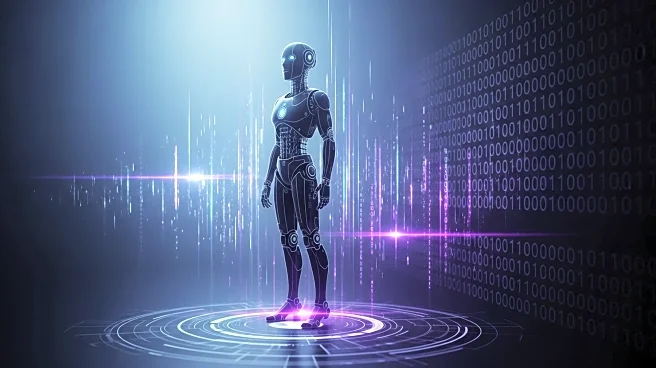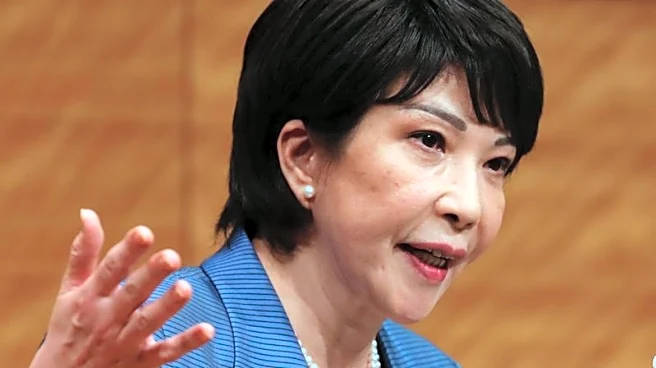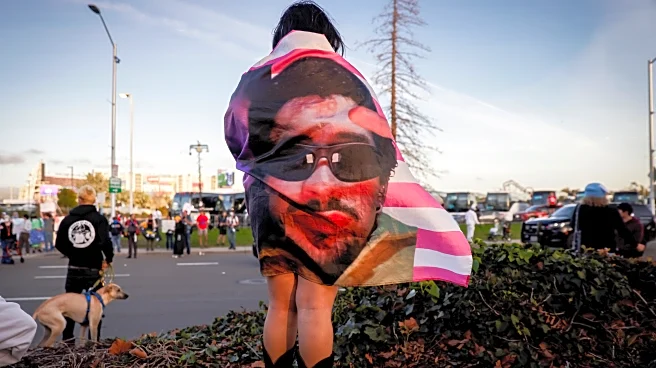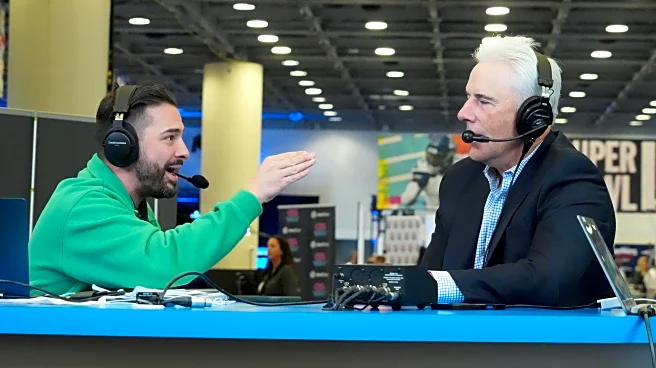What's Happening?
Authors whose works were included in a $1.5 billion settlement with AI developer Anthropic can now begin filing claims to receive compensation. This follows a federal judge's approval of the settlement, which addresses allegations that Anthropic illegally downloaded nearly 500,000 copyrighted works from Library Genesis and Pirate Library Mirror to train its AI chatbot, Claude. The settlement, approved by Judge William Alsup of the Ninth US Circuit Court of Appeals, requires Anthropic to pay $3,000 per book to copyright owners. The settlement marks a significant precedent as the first major resolution involving an AI company and the use of copyrighted materials for training large language models. Authors must file claims through the settlement administrator, with the process detailed on the website AnthropicCopyrightSettlement.com.
Why It's Important?
This settlement is a landmark case in the intersection of artificial intelligence and copyright law, highlighting the legal and ethical challenges of using copyrighted materials to train AI models. The outcome sets a precedent for future cases, potentially influencing how AI companies approach data sourcing and copyright compliance. For authors, the settlement offers a rare opportunity for compensation in an industry where copyright infringement often goes unaddressed. The case underscores the need for clearer guidelines and regulations regarding the use of copyrighted content in AI development, which could lead to broader industry changes and increased accountability for tech companies.
What's Next?
Authors eligible for compensation must file their claims by March 23, 2026. The settlement process is currently in the notice and claims phase, with authors receiving official notices via email and mail. These notices contain unique ID numbers necessary for filing claims. As the case progresses, it may prompt further legal scrutiny of AI companies' data practices and inspire similar lawsuits from other copyright holders. The outcome could also influence legislative efforts to address copyright issues in the digital age, potentially leading to new laws or amendments that better protect intellectual property rights in the context of AI.












